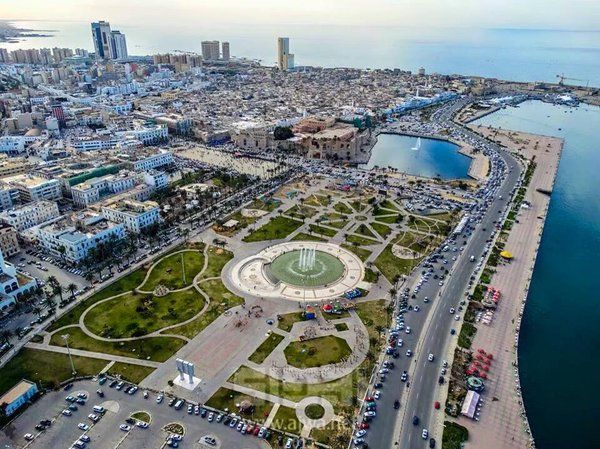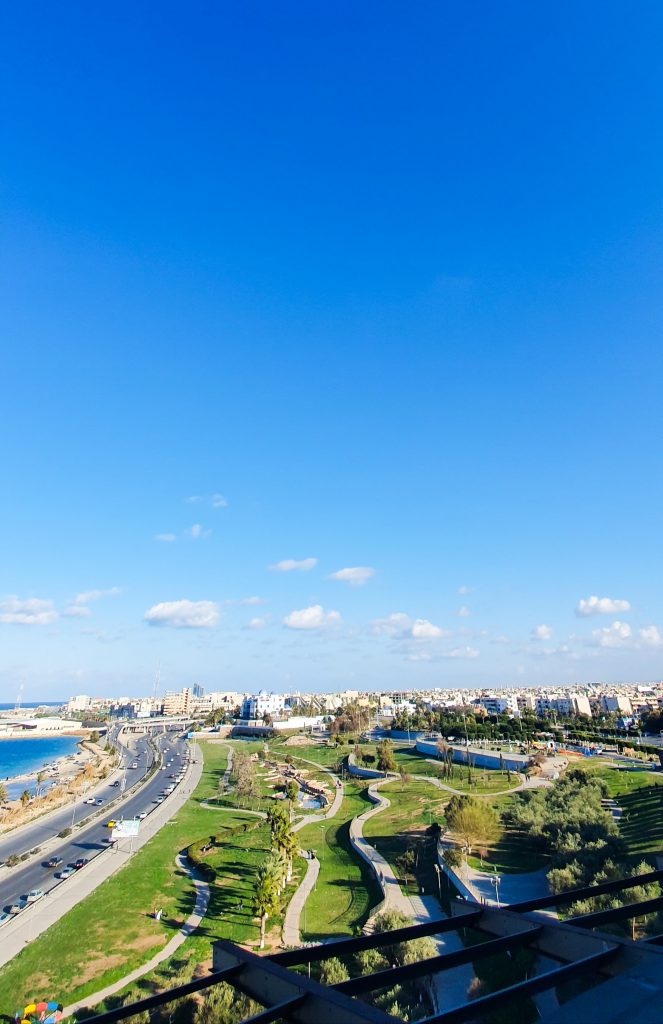Best way To Doing Business In Libya 2025
Table of Contents
Hearing about Libya may bring a picture of a country that is facing turmoil and war, but the truth now is different. It has huge opportunities to do business in Libya and amazing prospects for the one who wants to explore it. This scope has increased the inflow of investors in the country who are setting up their business in Libya and running it successfully.

For doing business in Libya setting up the business and completing formalities is just not enough. It is necessary to understand their deep rooted culture and of course one cannot ignore Libyan law related to business. This article puts lights on how to complete your business set up in the country and start doing business in Libya successfully.
Register your business
The first step to be taken for Best way Doing Business In Libya 2024 is to register your business in Libya. You can do that in different ways. It can be a Joint stock Company LLC or Libyan joint stock company where maximum 49% share can be held by a non-resident. You can also open up a branch office of your existing business or a Libya representative office. However, the latter cannot engage themselves in any profit seeking activities.

The time taken to set up will depend upon the type of business you are starting in Libya. You can do the formalities all by yourself by collecting the forms and meeting the notary or get a partner out there who will help you in completing all these formalities and guide you throughout. In order to start business in Libya you have to open a bank account there and deposit the minimum capital in the business bank account. You must remember that although English and Italian is spoken there still the official language is Arabic and you have to fill every form in Arabic.
Make your transition To Libya
Once the formalities are completed and you are ready for Best way Doing Business In Libya 2024 it’s time to move there. This transition phase is very important because if you do not find a good set up in the country then you cannot live there happily, even though the business may be generating profit!
While your business partner looks after the processing and formalities of starting business in Libya you must concentrate on the transition from your country to Libya. At first you should look for a home. Once done its time to get a vehicle, if required. If you have children then you must look for different schools in the locality where you are taking the home.
Another thing that is most important during transition phase is understanding the culture of Libya and getting along with them. It is mainly a country where the main religion is Muslim and there is certain strict law that they follow. It is best that once you are there you start understanding those things and become the part of their culture. You should not also overlook the immigration formalities that include work permit and visas to live in Libya.
Finding the right business partner
For starting business in Libya and doing it successfully there the first thing you need to do is find a business partner. If you do not get the right business partner then you can be sure that you are going to get a tough time. The right business partner will not only help in setting up the business but also make you acquainted with the local culture. Moreover, it is in Libyan Law that you need to get associated with a Libyan citizen to do business there. Thus, it is necessary that you get the right business partner for Best way Doing Business In Libya 2024

An explanation of Libya’s financial situation:
North African nation of Libya is endowed with an abundance of natural resources, mainly oil. As a result, the economy of the nation has historically relied primarily on the oil industry, which generates a sizeable amount of Libya’s GDP and exports.
However, following Muammar Gaddafi’s ouster in 2011, the nation has seen significant political unrest and economic unpredictability. Businesses operating in Libya, especially international corporations, have had difficulties due to the ongoing civil conflict and security concerns.
The COVID-19 epidemic, which has caused a drop in the price of oil globally and a decrease in demand for oil, has also had an effect on the Libyan economy. Because to its reliance on oil exports, this has had a severe impact on Libya’s government finances.
Notwithstanding these difficulties, Libya nevertheless offers commercial prospects, particularly in sectors like infrastructure improvement, building, and telecommunications. The nation’s administration has also been attempting to entice international investment by enacting economic reforms and enhancing the business climate.
Importance of doing business in Libya:
As I have said, Libya is a nation that is abundant in natural resources, notably oil. For companies wishing to grow their operations and enter new markets, this makes it a desirable location.
Libya is a significant entry point to other markets in the area due to its natural riches as well as its advantageous position in North Africa. A increasing demand for products and services across a variety of industries is being driven by the nation’s relatively youthful and educated population.
Tax breaks, investment guarantees, and access to government financing are just a few of the benefits offered to international investors. In addition, the government has been attempting to upgrade the nation’s infrastructure and promote the growth of crucial industries like telecommunications, tourism, and renewable energy.
Political and Legal Environment in Libya:
Current legal system in Libya
The Libyan legal system is categorized under the Civil Law system, which is influenced by the Roman law through the modern French Civil Code, also known as the “Code Napoleon,” and the Egyptian Civil Code. The Libyan Civil Code is considered the cornerstone of other Libyan legislation.
As Libya is an Islamic country with Islam as its official religion, the legal system is also influenced by the principles of Islamic law, which is one of the most important historical sources of Libyan law. Libyan law distinguishes between public law and private law, where public law rules govern the legal relations to which the State, as a sovereign power, is a party, while private law rules apply to legal relations between individuals or private juristic persons.
The formal sources of Libyan law are defined by the first Article of the Civil Code and include legislative provisions, principles of Islamic law, custom, and principles of natural law and rules of equity. Legislation is considered the primary and general source of Libyan law, which comprises written abstract and general rules established by the legislative authority to regulate and organize different aspects of life in society.
Market Opportunities in Libya:
Overview of key industries in Libya
In addition to petroleum, Libya possesses natural gas and gypsum as its other natural resources. However, its economy is primarily reliant on the oil sector, which generates substantial revenues. With a small population and significant income from the energy sector, Libya has one of the highest per capita GDPs in Africa. The national currency used in Libya is the dinar.
Potential for growth and investment
Large oil deposits, which have historically formed the foundation of Libya’s economy, have long been known about. Yet the nation also has access to a variety of other natural resources, such gypsum and natural gas, which provide huge potential for investment and development.
Notwithstanding the difficulties brought on by political unrest and continuous hostilities, there are a number of aspects that make Libya a desirable location for investment. They include its advantageous business environment, educated workforce, and strategic position at the meeting point of Africa and Europe.
However, recent government initiatives in Libya to diversify the economy and encourage investment in non-oil areas like tourism and agriculture have opened up new possibilities for companies wishing to develop there. Moreover, it is anticipated that Libya’s inclusion in the African Continental Free Trade Area (AfCFTA) would further encourage regional commerce and economic development.
Cultural Considerations:
Overview of Libyan culture
Libya’s lengthy history and many ethnic and tribal groupings have influenced the culture, which is a rich fusion of North African, Mediterranean, and Middle Eastern elements. With a focus on social peace and community ideals, family and hospitality play a significant part in Libyan culture.
The use of regional flavors and ingredients in Libyan cuisine, including couscous, lamb, and dates, distinguishes it from other regional cuisines. Traditional arts and crafts like pottery, weaving, and embroidery are still produced in various regions of the nation. Islam is the most common religion in Libya and it has a big impact on many facets of everyday life. Religion is also quite important in Libyan culture. Libya’s rich cultural history continues to flourish and adapt despite the difficulties brought on by political unrest and violence in recent years, demonstrating the tenacity and inventiveness of its inhabitants.
Tips for building strong business relationships in Libya
It is essential to have a solid understanding of tribal and clan culture in Libya, including the individuals and groups that hold significant power and influence. Developing business relationships may require connecting with multiple groups, which can provide access to a broader market and help mitigate risks if there are shifts in political and social power as the country navigates its future.
Once connections are established, it is crucial to build strong working relationships before delving into business matters. Libyans generally prefer to do business with people they have met face-to-face, so frequent visits to the country are important to demonstrate commitment to the market. Consistency in the team is also key, avoiding sending different individuals on each visit. It is crucial not to rush or underestimate the importance of relationship building in the Libyan business culture.
Setting up a Business in Libya:
Outline of Libya’s business-formation procedures
Many procedures are required to start a company in Libya, including securing the required licenses and permissions. The Commercial Registry Office registration process and obtaining a tax ID number are the initial steps. The firm must next apply for a business license with the Ministry of Economy, which might take up to six months to complete.
The business has to register with the General Union of Chambers of Commerce, Industry, and Agriculture after acquiring its license, as well as the Social Security and National Insurance Funds. A VAT number must also be obtained, and the business must register with the Tax Authorities.
The Libyan Investment Authority must also give its approval before a commercial venture involving foreign investors may begin. A comprehensive business strategy must be submitted, and authorization from several government bodies is required.
In Libya, starting a company may be a drawn-out and bureaucratic procedure that calls for patience and tenacity. Nonetheless, for those prepared to manage the complexity of the business-formation processes, it may be a profitable investment given the country’s immense natural riches and potential for economic development.
Key legal and regulatory requirements
Understanding the main legal and regulatory criteria is crucial while doing business in Libya. The Libyan Civil Code serves as the cornerstone of the legal framework and is the basis for the country’s legal system, which is based on the Civil Law system. Islamic law has an impact on the judicial system as well.
Labor rules, which impose limitations on the number of hours worked and a minimum salary, must be followed by businesses. In especially in sectors like the oil and gas industry, there are environmental standards that must be obeyed.
In order to guarantee compliance with all essential laws while doing business in Libya, it is crucial to cooperate with legal and regulatory professionals.
How do I find a business partner in Libya?
Now you must be thinking that how you can get the right business partner in Libya!
If you make a post in your Facebook account that you need a business partner in Libya you will be getting numerous offers from people who want to become your business partner for doing business in Libya. The question is not getting any partner but the right partner who will help you do business in Libya.
First thing you can do is find out who are the people who are already continuing business in the country successfully. If you find someone who has a good track record of doing business in Libya 2023 then you may be lucky to find the right partner. After you have a list of such businessmen you can fix appointment and discuss to find out with whom it would be best!
What are the main industries in Libya?
Construction, telecommunications, oil and gas, and tourism make up the bulk of Libya’s businesses.
What kind of judicial system does Libya have?
The Napoleonic Code and Sharia law serve as the foundation for Libya’s judicial system. Yet the country’s persistent turmoil makes the justice system sometimes ineffective or unreliable.
What is the business culture like in Libya?
The corporate culture in Libya is centered on personal ties and trust. Businesspeople are required to create a personal connection with their counterparts before participating in commercial activities.
What steps must a firm in Libya take to register?
In Libya, establishing a company may be a difficult and drawn-out procedure. It often entails securing many licenses and permissions from different governmental bodies.
What are Libya’s tax regulations?
The tax regulations in Libya are pretty basic. Most enterprises are subject to a flat rate tax of 20% on their earnings.
What Libyan labor laws are there?
In Libya, workers are often protected by favorable labor regulations. Companies are obligated to provide their staff members paid vacation days, social security benefits, and a minimum pay.
What are the principal difficulties in conducting business in Libya?
Political unrest, a lack of facilities, and a labor scarcity are the main obstacles to doing business in Libya.
What advice is available for conducting business in Libya?
Building personal connections with business partners, being aware of regional cultures and traditions, and being patient and adaptable during discussions are some business-related advice for Libya.
What are Libya’s economic prospects?
Libya’s economy has been badly harmed by the continuous war in the nation. Yet, the nation has enormous natural resources and a potential for expansion in industries like as tourism and construction.
What is the currency in Libya?
The Libyan dinar is used as money there (LYD).
How does Libya’s financial system operate?
There is little access to credit and financial services due to Libya’s undeveloped banking sector. To encourage foreign investment, the government is, nevertheless, reforming the banking industry.
What are the main trade partners for Libya?
Top 5 Export Partners of Libya:
Italy – accounting for 44.8% of Libya’s exports ($6.9 billion)
France – accounting for 8.7% of Libya’s exports ($1.3 billion)
China – accounting for 5.5% of Libya’s exports ($850 million)
Spain – accounting for 4.3% of Libya’s exports ($667 million)
Turkey – accounting for 4.1% of Libya’s exports ($636 million)
Top 5 Import Partners of Libya:
China – accounting for 15.9% of Libya’s imports ($2.8 billion)
Turkey – accounting for 12.1% of Libya’s imports ($2.1 billion)
Italy – accounting for 8.8% of Libya’s imports ($1.5 billion)
South Korea – accounting for 7.6% of Libya’s imports ($1.3 billion)
United Arab Emirates – accounting for 7.3% of Libya’s imports ($1.3 billion)
It’s worth noting that these figures can vary year to year, and are subject to change based on economic and political developments.
What are the linguistic requirements for conducting business in Libya?
Arabic is the official language of Libya, and most business dealings are conducted in Arabic. However, many Libyans also speak English, French, and Italian.
What Libyan import and export rules apply?
Libya’s import and export laws may be complicated and dynamic. To guarantee adherence to all rules, it is crucial to cooperate with a local freight forwarder or customs agent.
What are the visa and residence requirements for conducting business in Libya?
Visa and residence requirements for conducting business in Libya may be extensive, and it is vital to contact with a local lawyer or immigration professional to guarantee compliance with all legislation.
What are the cultural standards in Libya that should be considered while conducting business?
It is necessary to be aware of cultural standards in Libya, particularly the significance of personal connections and hospitality, as well as the conservative character of Libyan culture. Work clothes should be modest, and it is necessary to avoid alcohol and pork items.
While this may seem quite a good prospect to get the right partner but when you are new to Libya how can you get the track record of any businessmen? In that case you can take help of the consulting company who had helped you in setting up business. You let them know what you want from your business partner so that they can suggest you some prospects. Read More: LIBYAN INVESTMENT AUTHORITY

If you are in search of a consultant who can support you in everything for doing business in Libya, contact us. We will be there in step while you complete your set up in Libya, be that your professional or personal. We help in establishing your business by fulfilling all formalities. For your personal well-being we will help you find the best home that will be secure and safe. We will also help you choosing the right school for your kids, let you know about our culture and be a part of it. Click Here






